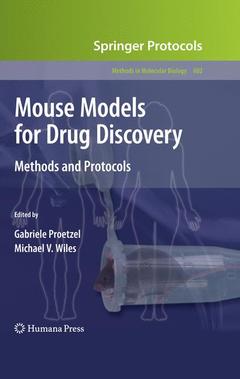Description
Mouse Models for Drug Discovery, Softcover reprint of the original 1st ed. 2010
Methods and Protocols
Methods in Molecular Biology Series, Vol. 602
Coordinators: Proetzel Gabriele, Wiles Michael V.
Language: English
Subjects for Mouse Models for Drug Discovery:
Publication date: 08-2016
Support: Print on demand
Publication date: 12-2009
421 p. · 17.8x25.4 cm · Hardback
Description
/li>Contents
/li>Comment
/li>
As the drug discovery process shifts more and more toward specifically targeting pathways and molecules, model systems continue to increase in importance, and the mouse, with its versatility, ease of use, and remarkable similarity to the human genome, has clearly risen to the forefront of animal model studies. In Mouse Models for Drug Discovery: Methods and Protocols, experts in the field present some background for those less familiar with mice as experimental model platforms as well as a collection of techniques involving general methods as well as specific disease topics such as type 1 and 2 diabetes, cardiovascular disease, arthritis, skin disorders, cancer, the use of behavioral models for depression and anxiety, neurodegenerative diseases, neuromuscular diseases, and infectious diseases. Written in the highly successful Methods in Molecular Biology? series format, chapters include introductions to their respective topics, lists of the necessary materials and reagents, step-by-step, readily reproducible laboratory protocols, and notes on troubleshooting and avoiding known pitfalls.
Authoritative and easy-to-use, Mouse Models for Drug Discovery: Methods and Protocols will stimulate those not familiar with the power of the mouse and its potential for the drug discovery process, and it will encourage the development of new models and new ways to utilize existing models in order to further the use of this dynamic animal in this vital field.




